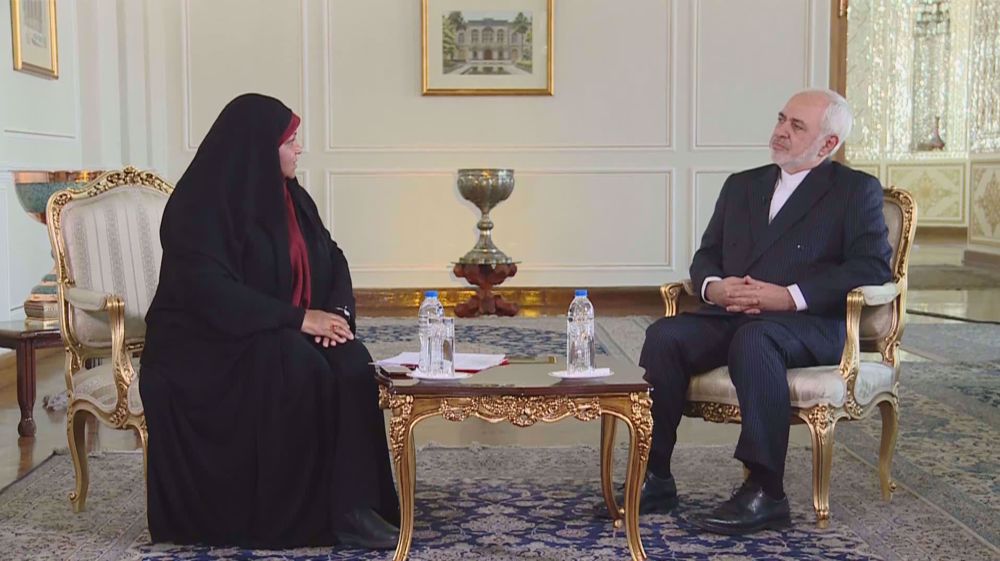The senior diplomat made the remarks to Press TV’s Marzieh Hashemi on Sunday.
He also said US President Joe Biden has spurned predecessor Donald Trump’s Iran policy in words, but has so far pursued the same course of action in practice.
“Nothing has changed. Biden claims that Trump’s policy of maximum pressure was maximum failure… But for all practical purposes, they are pursuing the same policy,” he said.
The Trump administration unilaterally abandoned the nuclear deal, formally called the Joint Comprehensive Plan of Action (JCPOA) in May 2018, and unleashed what his team called a “maximum pressure campaign” with the stated objective of forcing Iran to negotiate “a better agreement.”
The Islamic Republic refused to bow down to pressure and threats and responded to Trump’s maximum pressure policy with “maximum resistance.”
President Biden has expressed a willingness to bring the US back to the nuclear accord. However, his administration is demanding to see changes from Tehran before Washington would consider lifting the sanctions, as demanded by Iran.
The Islamic Republic insists that as the party that has abandoned its international obligations, the US should take the first step by removing the unlawful bans in a verifiable manner.
Doubling down on Iran’s firm position in that regard, Zarif reiterated that Washington would not be able to return to the JCPOA unless it removed the sanctions.
“All the sanctions must be removed; the United States must gain reentry to JCPOA. It’s not automatic; it’s not a revolving door,” Zarif said, adding the concept of snapback was not at all incorporated in the text of the JCPOA; rather it was “an American distortion.”
‘Pressure never works with Iran, only respect’
“The US is addicted to sanctions, bullying, and pressure. But it doesn’t work for a country with millennia of history. We have had a global empire that lasted longer than the United States’ history,” Zarif told Press TV.
“Therefore, with Iran pressure does not work, and ‘maximum pressure,’ in their own words, has led to ‘maximum failure,’” he said.
The Americans, he said, have to “open their eyes, make a sober assessment of the past, not only with Trump, and realize that with this country only respect works.”
Zarif said that the United States has not gained any leverage against Iran through its unlawful sanctions, adding that on the contrary the restrictive measures have only helped Iran diversify its economy away from oil.
“Trump left the [nuclear] agreement hoping that Iran’s government would crumble. Now, he’s gone, and we’re still here,” he said. “I think that’s a good lesson. Seven consecutive US presidents are gone. Every one of them wanted to get us out. All of them are out. We’re still here.”
‘Iran not violating JCPOA, only implementing remedial measures’
The top diplomat reminded that Paragraph 36 of the JCPOA enables Iran to take “remedial action” against failure by other sides to implement their obligations.
The Islamic Republic, he added, was not violating the agreement, it was simply implementing the remedial steps that it is entitled to in line with the pact.
He referred to a parliamentary lawthat obliges the Iranian government to take the latest step in its retaliation, namely the planned suspension of the International Atomic Energy Agency (IAEA)’s short-notice visits of the country’s nuclear program. The law, he said, was not a “warning to the world,” but a “domestic” interaction between the government and the legislative body that holds the government responsible.
Following the US withdrawal from the JCPOA, Iran waited for an entire year for the European signatories to hold up their end of their bargain and secure Iranian business interests, guaranteed by the deal, in the face of US sanctions. However, as the Europeans failed to deliver under US pressure, Tehran began to scale back its commitments in several phases in retaliation.
